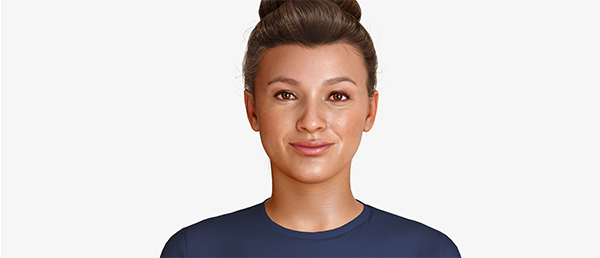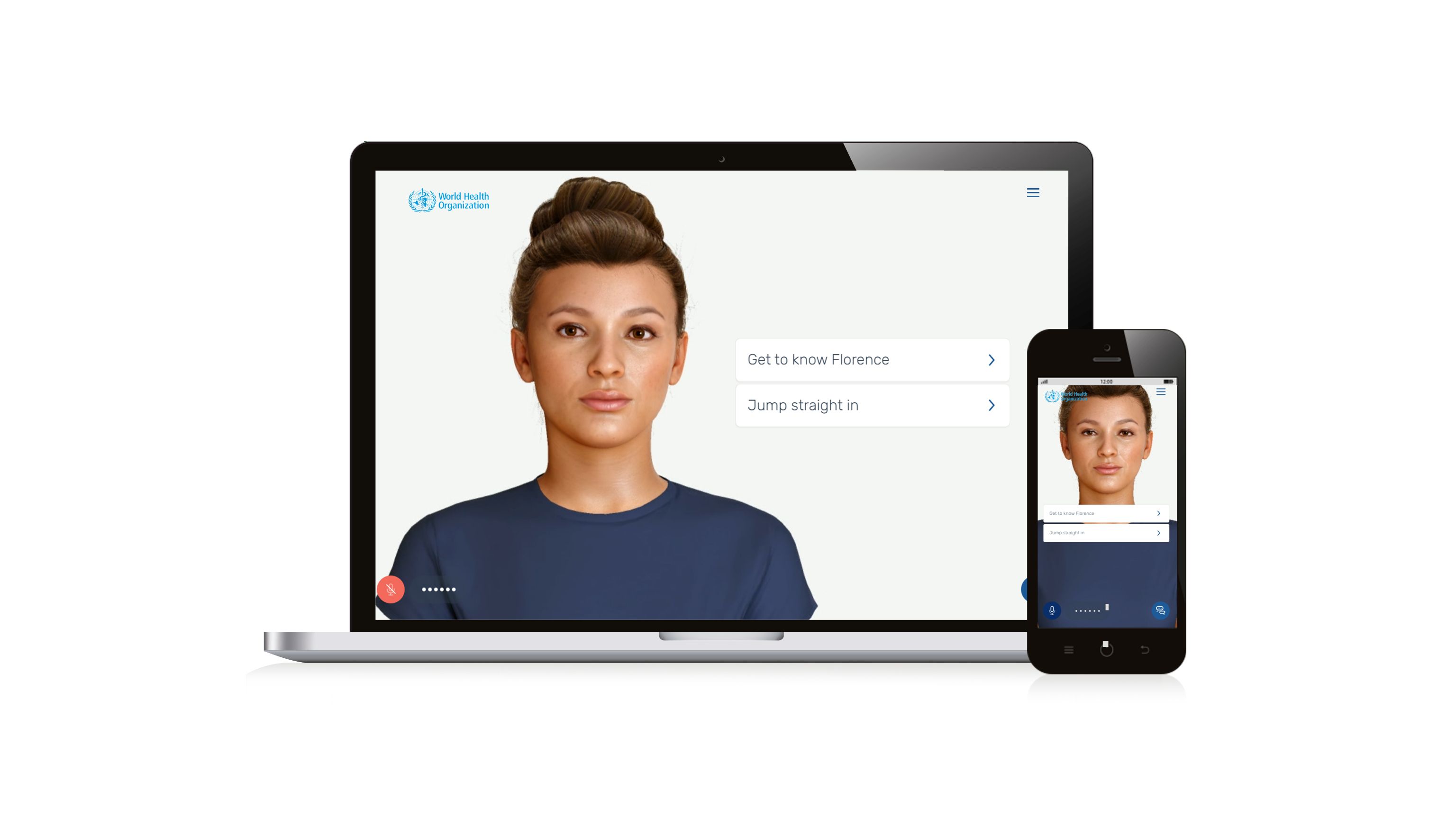

Florence, WHO’s first virtual health worker
Meet Florence, you can talk to her about quitting tobacco, healthy lifestyles and COVID-19 vaccines
In India, tobacco is consumed in myriad forms. Bidis, cigarettes and hookah (water pipe) are widespread forms in which tobacco is smoked. Popular smokeless tobacco products include khaini (a mixture of tobacco and lime), gutkha (a mix of tobacco, lime and areca nut), paan (betel leaves with tobacco) as well as oral application products such as gul (oral tobacco powder), gudakhu (tobacco paste) etc.
India’s Ministry of Health and Family Welfare (MoHFW) estimates that each year about 1.35 million deaths in the country can be directly attributed to tobacco use and its Global Adult Tobacco Survey (GATS-2) reveals that 267 million adults in India aged 15 years and above, use tobacco in some form.
Tobacco cessation is a key pillar of the National Tobacco Control Programme and the Government of India has set up the toll-free National Tobacco Quitline Services (1800-11-2356) to support tobacco users, who want to quit.
Florence, a digital health worker created by WHO is an additional tool to help tobacco users on their journey to a tobacco-free life. She has been programmed with the latest information on tobacco cessation methods and can provide information and tips on how to stop smoking.
Florence speaks in several languages—choose the language in which you would like to interact with her.
Florence, WHO’s first virtual health worker
Now you can use artificial intelligence to help you quit tobacco. Florence, a digital health worker is here to help you on your journey to a tobacco-free life. She has been programmed with the latest information on tobacco cessation methods and will help you quit by providing you with information and tips on how to stop smoking.
Florence is also equipped with information about COVID-19 and provide with answers on why you should quit tobacco during the pandemic as well as any questions you may have on COVID-19 vaccines.
How Florence can help you
Through a series of interactive questions, Florence will get to understand your relationship with tobacco and tailor her responses to best address your needs. With your input, she will create your ‘personal quit plan’, drawing from the best available science and offer support and guidance throughout the process.
In English, Arabic, Spanish, Russian, Chinese and French Florence can talk to you about many health topics including mental health, healthy diet, physical activity, tobacco, alcohol and COVID-19.
Why you should quit tobacco
Tobacco is extremely harmful and there is no safe level of exposure to it. While cigarette smoking is the most widespread form of tobacco use, other tobacco products like waterpipe tobacco, various smokeless tobacco products, cigars, cigarillos, roll-your-own tobacco, pipe tobacco, bidis and kreteks are also harmful. Research has proved that more than half of tobacco users are eventually killed by it. Currently, 7 million tobacco users die every year. The negative effects of using tobacco range from physical impacts like shortness of breath, throat and tongue cancer to mental impacts like increased anxiety and stress.
The health benefits of quitting tobacco
Quitting tobacco is not easy, but the health benefits far outweigh the health risks. When you stop smoking, the benefits start almost immediately. Your heart rate and blood pressure drop in only 20 minutes. Within 12 hours, the carbon monoxide level in your blood returns to normal and coughing and shortness of breath can decrease in as little as one month. Ultimately, when you quit tobacco, you will experience improved breathing with healthy lungs and increase your chances of a longer life.
News
Multimedia


Let Florence* help you quit tobacco today.
*Florence was created with technology developed by San Francisco and New Zealand based Digital People company Soul Machines with support from Amazon Web Services and Google iCloud.
** To improve your conversational experience, Florence needs to access your microphone and camera. Read here the WHO privacy policy.








